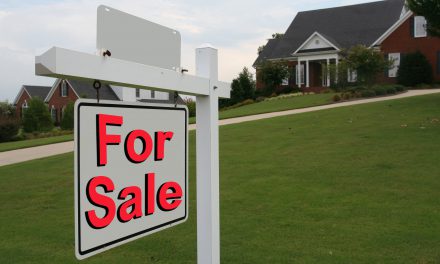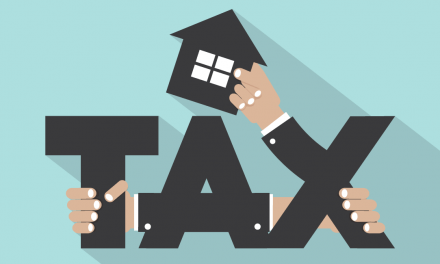Today’s homebuyers earn more money than current homeowners — and in some areas of California, the difference is profound.
That’s because, as home prices increased rapidly throughout 2012-2017, homebuyers have needed to earn higher incomes in order to qualify to buy the same type of home. As the years have gone by, this results in buyers needing to pay more to get into the same neighborhood compared to their predecessors.
Nationally, the average new homebuyer earned $79,900 in 2017, 6.5% higher than those who already owned their home, who had an average income of $75,000. In California, new homebuyers in 2017 earned:
- in San Jose, 33% more than current owners;
- in San Francisco, 20% more than current owners;
- in San Diego, 15% more than current owners;
- in Los Angeles, 13% more than current owners;
- in Sacramento 9% more than current owners; and
- in Riverside, 4% more than current owners, according to Zillow.
In each of California’s major metro areas — excluding Riverside — the gap between homebuyers and current owners is well above the national average. What’s more, new homebuyers need to contend not just with higher mortgage payments, but higher tax payments as well.
Prop 13: the welcome stranger law
Unlike other states, California homeowners pay property taxes based on the assessed value of their home in the year of purchase, plus a nominal inflation factor of no more than 2%. This was enacted by Proposition (Prop) 13.
The effect is that new homebuyers pay significantly higher tax bills than their homeowning neighbors. Since property taxes are a necessary part of sustaining healthy and desirable communities, these new owners are effectively subsidizing the tax bills of those who are paying much less (hence why it’s sometimes called the “welcome stranger law”).
Related article:
Of course, proponents of Prop 13 will argue, the longer today’s new homebuyers own their homes, the more benefits they will reap in the future. But by rewarding sedentary homeownership, Prop 13 discourages people from selling and buying replacement property — the very lifeblood of the real estate industry.
Worse, local governments are forced to compensate for the huge shortfalls in property taxes paid by long-term homeowners, detrimental to all residents. A study by the Tax Foundation found that to make up for Prop 13, the state and local governments have needed to increase:
- income tax rates;
- sales taxes; and
- business taxes.
Prop 13 proponents say that it has helped senior citizens on fixed incomes stay in their homes due to the predictable property taxes, and this may be true. But any number of laws can be put in place to protect this type of homeowner with lower tax rates. For example, the law could cover only those of a certain age, or in certain income brackets, still protecting vulnerable populations while ensuring a more equitable property tax distribution — and more funds available for public services.
But Prop 13 won’t change anytime soon. Potential changes to Prop 13 have made it onto the ballot several times over the years, but they continue to fail.
Once people get used to having a tax break, they won’t vote to eliminate it, and even altering it will be a tough sell. Until the unexpected happens and Prop 13 is reformed, the burden will continue to fall on new homebuyers and communities, holding back sales and damaging California’s housing industry.















What a crock!!! California is the hiighest taxing state in the world…look what the LIBS do with the taxes…bullet trains to nowhere(billions lost there) gas taxes not used as law requires, regulations that cost developers and homeowners exhorbanant amounts and make building impossible…just ask the residents of Paradise that are trying to rebuild!!!! Most of them cannot rebuild due to regulations, EPA, and permitting fees!! If prop 13 is ever overturned the state and local gov’s will raise and blow taxes even more…Ca may have a “surplus” budget but they also have cloose to a trillion dollars debt!!!! Not to mention all the unfunded pension liabilities the sacto politicians give themselves and their cronies…..Gotta go Bp is rising….
I agree with Ray Lindsay!!!! Crane should be ashamed of himself for advocating for a REAL tax threat on the people of California. Leave Prop 13 alone, Mr Crane and go after those CA leaders who are using the wealth of Californians to promote their own goals while taxing us out of our own homes!!
Blaming government funding shortages on Prop 13 is a red herring. You can easily confirm that property tax revenues have far outstripped the rate of inflation. I saw one study for school funding that post-Prop13 revenues were up 200% after adjusting for inflation. The real problem is that government expenditures have grown at an even greater rate.
The one area of prop 13 that does need to be fixed is the commercial. Large businesses evade Prop 13 by disguising changes of ownership of the property by changing ownership of the entity. Under Prop 13 that should allow reassessment. But because the stock/interest transfers are not reported to the assessor, those changes of ownership are often not picked up. What is required is more enforcement against these evasions, not a change to Prop 13.
I moved into a senior community from and to a home in California. After about 5 years I noticed my assessed value was about $60,000 higher than the market, so I appealed the value with the county assessor. They agreed with me and informed me they would adjust the value, but in the future Assessment would based under Proposition 8 rather than 13. While I desagreed, they lowered the assessment only on this basis. Now my home is reassessed every year higher! It has far outpaced what it had been if I had just paid the extra and not insisted the assessor do their job – assess based on market value no matter! As a result, I am moving to Arizona where the property taxes are 45% of what I pay now, get a bigger new home and can better enjoy my retirement.
First Tuesday keeps beating the same old tired drum that proposition 13 is bad. Prop 13 has nothing to do with the price of residential real estate in California going up. Supply and Demand is what drives prices. If employers want to hire some wiz-bang coder or chemist, they are going to have to pay more in wages and perks. The company can only afford that person if they can sell their product at a profit. It’s NOT based on how little Grampa Joe pays in property taxes. I know that’s over simplifying a complex issue but California taxes EVERYTHING, and generally at a MUCH higher rate than the rest of the country. If prop 13 goes away it will be open season for the State of California to bang your home equity like an ATM machine.
I agree with your assessment. This article is over-simplified and repeating the same complaints that Prop 13 opponents always say (until they begin to benefit). Also, people tend to forget that those long-time homeowners who benefit from Prop 13 have also been paying taxes for much longer, taxes that have gone into improving the community for decades.
As a relatively “newer” homeowner, I have no problem with my “senior” neighbor benefiting from the stability they’ve brought, and will continue to contribute, to the neighborhood.
The problem with prop 13 is that commercial property enjoys this tax break as we as Grandpa Joe. If commercial property we’re taxed at current values the state would be so flush with cash that all property taxes on residential property could be reduced
Agreed. Hence the statement “residential real estate in California” and the “over simplifying a complex issue” comment. California voter/taxpayers need to close the loophole on LLC/Corporate transactions on commercial real estate.